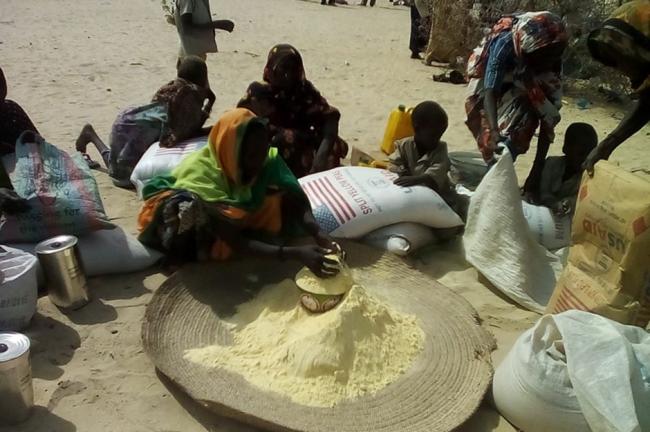
Chad: Two million people face hunger in Sahelian belt, UN agency warns
According to an emergency food security assessment conducted by the Government of Chad, the World Food Programme (WFP) and other partners, which covered the eight regions of the Sahelian belt, the food insecurity and malnutrition situation has worsened over the past year.
“For vulnerable families throughout the Sahelian belt, the lean season this year will be extremely difficult,” said WFP Country Director Mary-Ellen McGroarty.
Over the past year, food insecurity rates have been steadily rising from 46 per cent to 58 per cent in the Kanem region, and from 40 per cent to 49 per cent in the Bahr el Ghazel region. Malnutrition rates have also worsened since November 2015 in six regions, namely Bahr El Ghazel, Batha, Kanem, Lac, Sila and Wadi Fira.
Among the factors contributing to the worsening food security and nutrition situation are erratic rainfall during the 2015/2016 growing season, which has led to 11 per cent less food being produced compared to the previous year.
Insecurity and violence spilling across the border from neighbouring Nigeria due to the Boko Haram insurgents has led to borders being closed and disrupted trade.
A drop in livestock price due to disruptions to the cross border trading has negatively impacted the pastoralist communities.
Food assistance will be provided throughout the lean season, which runs from June to September. This will be accompanied by specialized nutritional support for children, pregnant women and nursing mothers suffering from malnutrition.
Such assistance will be followed by projects aimed at mitigating the impact over the longer-term, such as water harvesting and management systems being put in place.
The assessment was conducted with 4,821 households with 10,226 children under five in March and April.
Photo: WFP West Africa
Source: www.justearthnews.com
Support Our Journalism
We cannot do without you.. your contribution supports unbiased journalism
IBNS is not driven by any ism- not wokeism, not racism, not skewed secularism, not hyper right-wing or left liberal ideals, nor by any hardline religious beliefs or hyper nationalism. We want to serve you good old objective news, as they are. We do not judge or preach. We let people decide for themselves. We only try to present factual and well-sourced news.







